“You should take the approach that you’re wrong. Your goal is to be less wrong.”
― Elon Musk
How do we as disciples show love to those who are aggressively and militantly hostile to us? How do we counsel and engage with those who are far away from Christ? How do we disagree with our fellow disciples? Should we?
All of us, believers or not, are wrong about something. Our wrong ideas and understandings may be shared by our friends and community, it may be our own idiosyncratic beliefs, or it could be a perverse view that is shaped by our own self-interest. Being wrong is inherent in being human. As humans limited in time, space, perception, ability, etc. we are fallible; meaning we are capable of making mistakes. In fact, we all know that we regularly and persistently make mistakes and are wrong. Elon Musk’s quote is a realization and affirmation of the human condition, where we are all wrong in some of our beliefs and opinions.
This grappling with our human limits has shifted the way we approach science and technology. Instead of using classical one-factor experiments to determine concrete truths, we explore our world proposing new ways of understanding that, to be valid within the scope of science, can be proven wrong.[i] The current scientific method is to propose a hypothesis with a predicted outcome that can be tested and show that the hypothesis is false. When we fail to show that it is false, it is not proven true, but rather shown to be a possible understanding that could be helpful or valuable. Scientific knowledge by current understanding is provisional, not certain. Our current understanding is always limited and incomplete. Consequently, we need to be open to evidence and observations that our current ideas need to be changed. All humans, as humans, are flawed and have ideas and beliefs that are wrong.
For Christians, we recognize that for all people this is even more fundamental. We are not merely wrong because we are limited and finite, we are wrong because we are sinners. We deny the truth for our own selfish interests. The noetic result of The Fall (noetic is about how we think and know) is that all of us are wrong in our beliefs. Even Christians are wrong. Even in our best understandings, we lack a comprehensive and complete understanding. There is always more to learn and know. We can become better but our understanding and beliefs are always incomplete and distorted. As disciples that realize our own fallibility. We need to humbly submit to God’s providential encounters with others in order to become less wrong. Every encounter in life we have is not happenstance or luck but is God providentially shaping our lives.
God, wisely in His grace and mercy, allows us to engage with others who are different, who disagree, who challenge, who confront, who argue with us about the whole range of issues. If we realize that we are prone to reductionism, reducing the truth to something too simple and limited, and prone to certainty, believing that our understanding is absolutely true and complete, then we should treat each providential engagement—every engagement in conversation—not as an argument to win but as an opportunity to become less wrong. Even views we find repugnant and absurd can be the Holy Spirit prompting us to think better, to consider how we need to change, to see how often we are absurd and repugnant, to treat someone else with compassion, grace, and love the way we wish to be treated when we are wrong. We also need to see, even in dumb and popular arguments, the possibility that our own ideas need to be more complete and bigger. Not that we abandon our core beliefs, but that we realize our understanding needs to be even bigger and more profound and comprehensive than we understood.
For example, as disciples, we need to realize that Jesus not only saves us, but he is our King, our Christ, and he has saved us to carry out his commands to serve and love others.
Paul argues for diverse perspectives within the Church to allow us to be gracious to others and to help all of us grow in our faith, improving our understanding of life and Scripture. We are to respect the freedom of others to hold to a view different than ours. We should allow others to practice and believe as they understand the Scripture to teach. Many of our denominational and theological “divisions” are matters that should be accepted as matters of liberty and not conditions for fellowship.
“Now accept the one who is weak in faith, but not to have quarrels over opinions. 2 One person has faith that he may eat all things, but the one who is weak eats only vegetables. 3 The one who eats is not to regard with contempt the one who does not eat, and the one who does not eat is not to judge the one who eats, for God has accepted him. Who are you to judge the servant of another? To his own master he stands or falls; and he will stand, for the Lord is able to make him stand.” Romans 14:1-4 (NASB)
We are not to tolerate heresy, but we are also not to be contentious:
“Therefore if there is any encouragement in Christ, if any consolation of love, if any fellowship of the Spirit, if any affection and compassion, 2 make my joy complete by being of the same mind, maintaining the same love, united in spirit, intent on one purpose. 3 Do nothing (contentious) from selfishness or empty conceit, but with humility consider one another as more important than yourselves; 4 do not merely look out for your own personal interests, but also for the interests of others.” Philippians 2:1-4 (NASB)
Our goal should be to live as disciples of Christ with integrity, recognizing each encounter with others as an opportunity to share what we experience and believe about Christ and life in Him, as well as illumination in where we are quite possibly wrong so we can become a little less wrong. Our goal is love in truth, not victory in conflict.
Dr. Raymond Monroe is the co-host of The Disciple Dilemma podcast, and lives in the Chicago area with his wife Renee. As the Executive Vice President for the Steel Founders Society of America Raymond leads the collective technical and manufacturing industry activities for national and international corporations. Raymond has a PhD in Manufacturing Engineering from Worcester Polytechnic Institute in New York, and a B.S. in Chemical Engineering from Auburn University.
[i] https://staff.washington.edu/lynnhank/Popper-1.pdf
